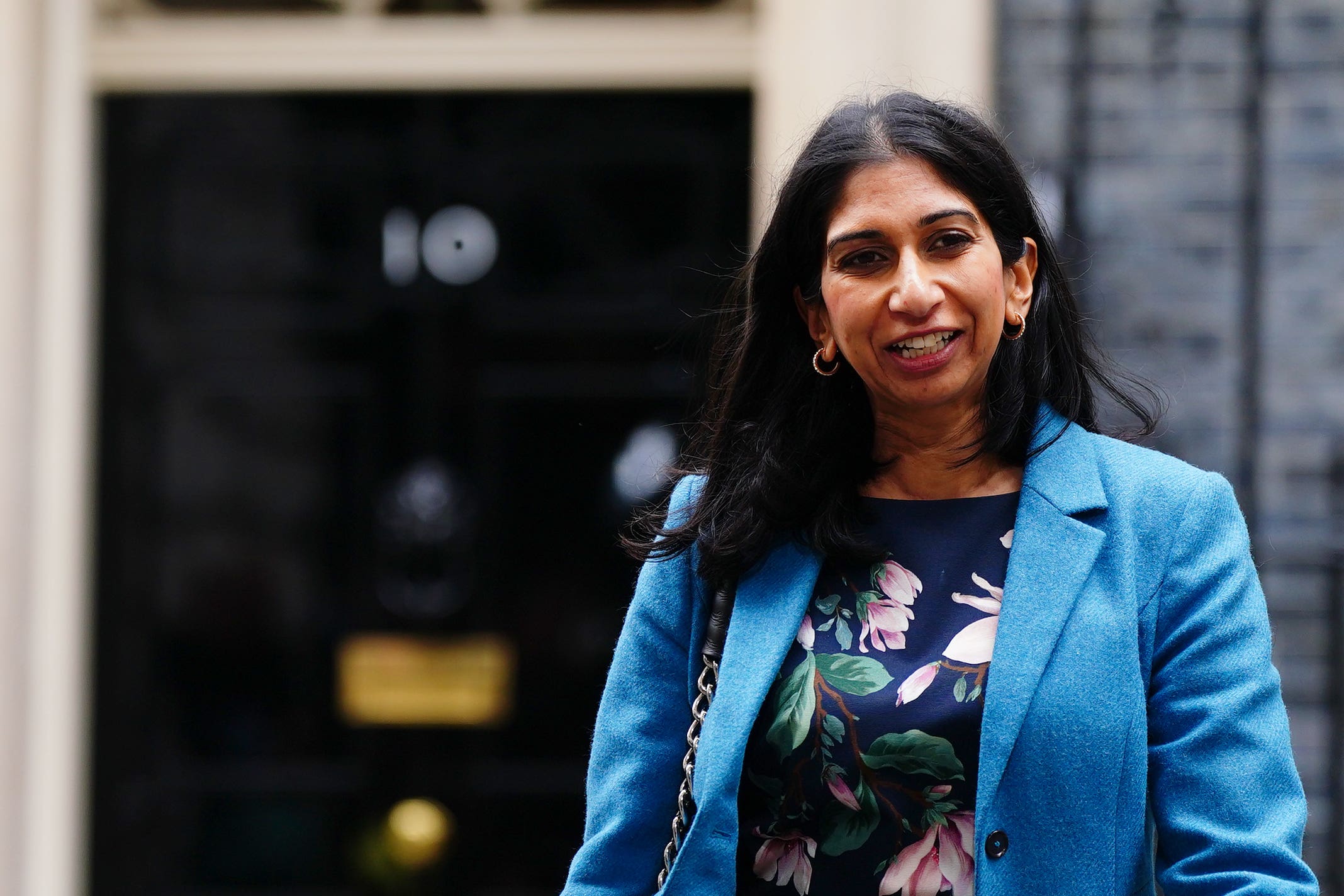Return of Braverman puts Sunak’s hopes of survival at risk, says polling guru
Home secretary drawing attention to Tory ‘achilles heel’ on immigration

Your support helps us to tell the story
From reproductive rights to climate change to Big Tech, The Independent is on the ground when the story is developing. Whether it's investigating the financials of Elon Musk's pro-Trump PAC or producing our latest documentary, 'The A Word', which shines a light on the American women fighting for reproductive rights, we know how important it is to parse out the facts from the messaging.
At such a critical moment in US history, we need reporters on the ground. Your donation allows us to keep sending journalists to speak to both sides of the story.
The Independent is trusted by Americans across the entire political spectrum. And unlike many other quality news outlets, we choose not to lock Americans out of our reporting and analysis with paywalls. We believe quality journalism should be available to everyone, paid for by those who can afford it.
Your support makes all the difference.The reappointment of Suella Braverman as home secretary could blow a hole in Rishi Sunak’s hopes of holding on to power at the next general election, polling guru Sir John Curtice has said.
Prof Curtice, of Strathclyde University, said that no government in modern times has ever survived at the ballot box following a fiscal crisis on the scale of last month’s market collapse, which was sparked by Liz Truss’s mini-Budget.
With his personal ratings running far ahead of those of the Conservative Party, Mr Sunak’s best chance of turning the polls round in the two years that remain is to persuade voters that the party has changed since the days of Ms Truss, Boris Johnson and Partygate, and now “plays by the rules”, said the professor.
In those terms, restoring Ms Braverman after just six days to the post she lost due to a breach of the ministerial code represents a “risk”, Prof Curtice told a briefing in Westminster. And her decision to throw the public spotlight onto the issue of migration by small boat across the English Channel is not “good politics”, he said.
“In so far as what you’re wanting to do is to persuade people that you’re controlling immigration, trying to focus public attention on the one thing that you cannot control, and to do so in a way that actually gives the impression that the problem is greater now than it was – which of course is not true – doesn’t obviously strike you as good politics,” said Prof Curtice.
“You’re inviting people to look at your achilles heel, whereas what you want to do is to deflect attention away.”
Prof Curtice said that the 30-point-plus deficits recorded by the Tories in recent polls were “arguably as bad as it has ever been for a government”.
While Mr Sunak has enjoyed a small “honeymoon bounce” since arriving in office, his election as leader still leaves Labour in a position from which an overall majority at the next election is a real prospect.
“No previous government has managed to survive at the ballot box in the wake of a fiscal or financial crisis,” said Prof Curtice, pointing to Gordon Brown’s defeat following the financial crash of 2008, John Major’s after Black Wednesday in 1992, and James Callaghan’s after the UK had to go to the IMF for assistance in 1976.
The current situation differs only in that the Conservatives have changed leader following the market crisis, giving Mr Sunak the hope of using the popularity he earned as chancellor to reverse his party’s fortunes.
Recent polls have found that the new prime minister is preferred to Sir Keir Starmer as the best person to run the economy, but that in terms of the parties’ ratings, Labour is favoured over the Tories on the same issue, said Prof Curtice.
“The challenge for Sunak is that he’s got to be able to try to translate his personal popularity, including on the economy, into dealing with his party’s reputation,” he said. “I’d say, when it comes to people’s willingness to vote for the Conservative Party, there’s still an awful lot of work to do.”
And he said that the key to this would be Sunak’s ability to restore the party’s reputation for integrity.
“If I were providing advice to the prime minister, I would say, one thing he has to do is to play by the rules – not just the legal rules, but the rules of convention,” said the professor. “That’s why reappointing the home secretary within days of her having resigned for having broken ministerial code was, shall we say, a brave decision.”
Prof Curtice said he could see why Mr Sunak might want to reward Ms Braverman for endorsing him in his second leadership battle last month, when she was credited with denying Mr Johnson a solid support base on the right. But he added: “That’s a risk.”
The professor explained that because of previous revelations about Mr Sunak’s US green card and his wife’s non-dom status, the prime minister “absolutely has to play it safe”, particularly at a time when voters are about to be reminded by the Covid inquiry of any concerns they may have had about Mr Sunak’s involvement in lockdown parties.




Join our commenting forum
Join thought-provoking conversations, follow other Independent readers and see their replies
Comments